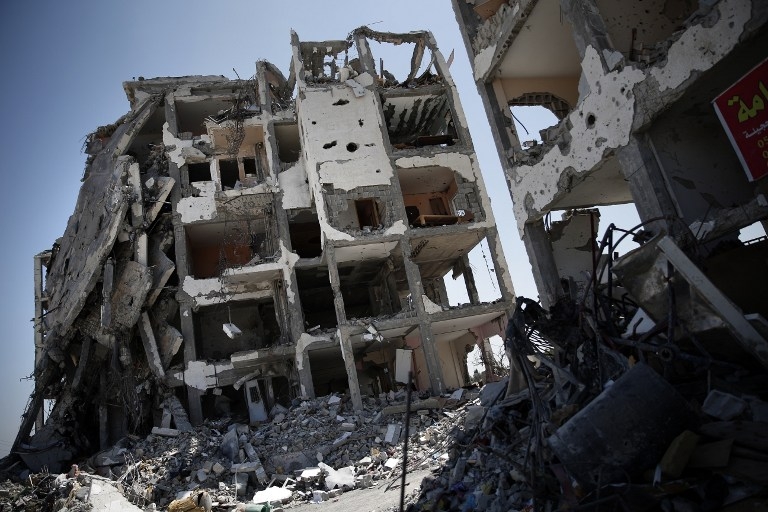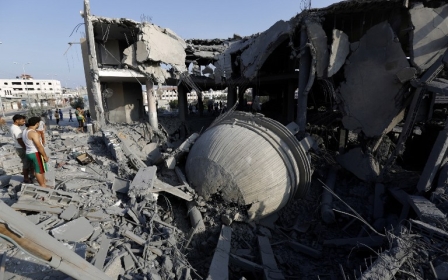Conflicting reports on new Gaza ceasefire proposal from Egypt

Egyptian mediators have proposed a new ceasefire in Gaza that would open the blockaded enclave's crossings and allow in aid and reconstruction materials, a senior Palestinian official said on Monday.
The Palestinians, including the de facto Hamas rulers of the enclave, would be willing to accept such a deal if Israel does, the official told AFP.
However, a Hamas official has reportedly rejected talk of a new truce agreement.
"There is no new Egyptian initiative on the table for a ceasefire in Gaza," Hamas spokesperson Abu Marzouk is quoted as saying by Israeli Army Radio.
The rumoured proposal would defer to a later date negotiations on disputed points that have prevented a long-term ceasefire deal, he added.
An Egyptian official confirmed that mediators have contacted the Palestinians and Israel with a new proposal.
"There is an idea for a temporary ceasefire that opens the crossings, allows aid and reconstruction material, and the disputed points will be discussed in a month," the Palestinian official said.
"We would be willing to accept this, but are waiting for the Israeli response to this proposal," he said, requesting anonymity because of the sensitivity of the negotiations.
A previous ceasefire to end the devastating conflict in Gaza collapsed on 19 August after Egyptian mediators were unable to bridge the gaps between the two sides.
The conflict, now in its 49th day, has killed more than 2,100 Palestinians and 68 Israelis, mostly soldiers.
Hamas has insisted that any long-term truce must end the eight-year blockade of Gaza and allow for an airport in the coastal strip that is flanked by Israel and Egypt.
Israel says it wants Hamas, which it, the United States and European Union consider a terrorist organisation, to disarm, something the militants have refused to discuss.
New MEE newsletter: Jerusalem Dispatch
Sign up to get the latest insights and analysis on Israel-Palestine, alongside Turkey Unpacked and other MEE newsletters
Middle East Eye delivers independent and unrivalled coverage and analysis of the Middle East, North Africa and beyond. To learn more about republishing this content and the associated fees, please fill out this form. More about MEE can be found here.




